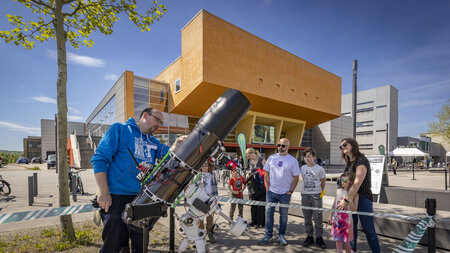Makroökonomik für Fortgeschrittene
Allgemeine Informationen
| Dozenten: |
Prof. Dr. Sebastian Gechert (V); Dr. Bianka Mey (Ü) |
| Zeit/Ort: |
Vorlesung, digital: donnerstags, 9.15 Uhr -- 10.45 Uhr |
| Übungstermine: | Übung, 14-täglich (ungerade KW), montags, 9.15 Uhr -- 10.45 Uhr |
| Zuordnung: | siehe Vorlesungsverzeichnis |
| Erste Veranstaltung: | 14.10.2021 (KW 41) |
| Erste Übung: | 25.10.2021 (KW 43) |
Informationen und Unterlagen zur Vorlesung: OPAL-Kurs
PW: W…
Ziel:
This course focuses on advanced topics in macroeconomics. Students learn about thestylized facts and different theories of growth, development, business cycles and macroeconomicpolicies. Models of various schools of economic thought will be critically discussedand compared to each other. After successful completion of the course, studentsshould be able to approach the related academic literature as well as current policy debates.They should develop critical thinking to evaluate the scope and limits of differenteconomic theories / models for real world problems. Knowledge of basic concepts ofmacroeconomics and microeconomics is required. Students should have completed therespective introductory courses.
Gliederung:
Introduction
Lecture 1: Stylized Facts • Stylized Facts of Long-Term Growth and Business Cycles
Lecture 2: Overview of Macroeconomic Theories • Overview of Macroeconomic Theory • Alternative Modeling Approaches
Long-Term Growth
Lecture 3: Basic Neoclassical Growth Models • The Solow-Swan Growth Model • The Ramsey Model
Lecture 4: Neoclassical Endogenous Growth Models • Technological Change • Human Capital
Lecture 5: Keynesian Demand-Constrained Growth Models • Potential Output and Hysteresis • Investment Demand and Saving Supply
Short-Term Growth
Lecture 6: The Neoclassical Synthesis • The Neoclassical Synthesis • The Dynamic AS-AD Model
Lecture 7: New Classical Real Business Cycle Models • The Rational Expectations Hypothesis (REH) • The Lucas Critique • The “Policy-Ineffectiveness Proposition” (PIP) • The Real Business Cycle (RBC) School2
Lecture 8: New Keynesian Models – Basics • Nominal Rigidities • Real Rigidities • The Workhorse 3-Equation Model
Lecture 9: New Keynesian Models – Monetary & Fiscal Policy • Taylor Principle and Determinacy • Monetary Policy • Fiscal Policy
Lecture 10: The Zero-Lower Bound on Nominal Interest Rates • Zero Lower Bound Economy • Monetary Policy • Fiscal Policy
Lecture 11: Alternative Approaches I: Expectations and Learning • Alternative Expectation Formation • Precautionary Saving • Learning Approaches
Lecture 12: Alternative Approaches II: Heterogeneous Agents • HANK Models • SFC-ABM Models
Lecture 13: Repetitorium
Übung
25.10.2021: Technische Einführung • Differenzangleichungen 1. Ordnung • Steady state • Stabilität
08.11.2021: Technische Einführung • Differenzangleichungen 2. Ordnung • Steady state • Stabilität
22.11.2021: Solow-Swan Modell • Wiederholung Grundlagen • Wachstumsraten
06.12.2021: Solow-Swan Modell • Steady state • Ramsey-Modell: Grundlagen
03.01.2022: Ramsey-Modell: Anpassungsdynamik
17.01.2022: Endogenes Wachstum • länderspezifische Einkommensunterschiede • nachfragebeschränktes Wachstum
31.01.2022:






